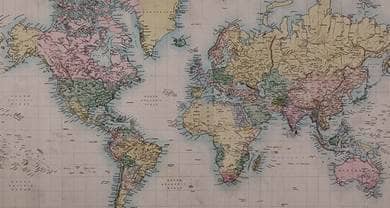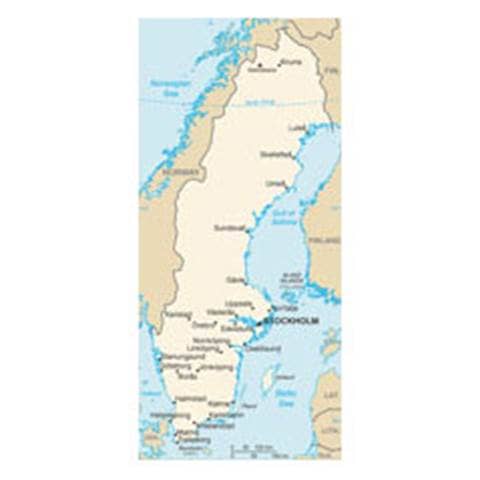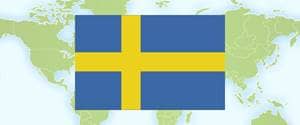- Trending:
- Forgiveness
- |
- Resurrection
- |
- Joy
- |
- Trump
- |
- Kamala Harris
- |
- Supreme Court

RELIGION LIBRARY
Sweden

The country has an area of 173,732 square miles and a population of 9.3 million.
There are numerous religious groups. The Government does not register the religion of citizens--it relies on statistics submitted by religious organizations when they apply for annual state funds.
Religious membership or affiliation is concentrated in a few major denominations. According to the Church of Sweden (Lutheran), an estimated 72.9 percent of citizens are members; other Protestant groups total approximately 4.4 percent (400,000 persons) of the population. Membership in the Church of Sweden has decreased steadily since it separated from the state in 2000. During 2008, 49,757 members left the Church (0.8 percent of registered members). Church-led studies found that individuals left primarily for economic reasons: membership carries a tax on income, normally less than 1 percent (separated members can still attend services.) In 2008 the Church baptized 59 percent of all children born in the country, a figure that has steadily declined over the past two decades. Fewer than 34 percent of 15-year-olds were confirmed in 2008; 80 percent were in 1970. The Church married 44 percent of all couples, compared to 61.1 percent in 2000.
Approximately 5 percent (450,000-500,000) of the population is Muslim, although the officially sanctioned Muslim Council of Sweden, for government funding purposes, reported only 106,327 active participants.
Religious communities representing fewer than 5 percent of the population include the Pentecostal movement, the Missionary (or Missions) Church, Jehovah's Witnesses, and The Church of Jesus Christ of Latter-day Saints (Mormons).
The number of Jews is approximately 20,000. The Jewish community estimates that there are 8,000 practicing members. There are Orthodox, Conservative, and Reform synagogues, found mostly in the cities. Large numbers of Jews attend High Holy Day services, and the synagogues normally also fill up for weekly services.
Smaller communities are concentrated in larger cities and include Buddhists, Hindus, Sikhs, Zoroastrians, Hare Krishna, Church of Scientology, Word of Faith, and the Unification Church.
It is against the law for the Government to register the faith of individuals; therefore, there are no statistics on correlation between religious groups and socioeconomic status. However, large numbers of immigrants are found at the bottom of the socioeconomic scale.
Certain religions are closely tied to immigrant groups, including the large Finnish-speaking Lutheran denomination and the Orthodox Christian churches attended by Syrians, Serbs, Greeks, Romanians, and Macedonians. Nearly all Roman Catholics are first or second-generation immigrants, from southern Europe, Latin America, and Poland. Within the Stockholm Catholic Diocese, the Armenian, Chaldean, Maronite, Melchite, and Syrian churches celebrate Mass in their respective languages, as do the Polish, Croatian, Spanish, Italian, Eritrean, Vietnamese, Korean, and Ukrainian communities. The majority of immigrants from the Middle East are Muslim and attend services in Arabic. Members of the more common religious communities tend to be concentrated in the three largest cities. While services in Christian churches generally are poorly attended, many persons observe major church festivals and prefer religious ceremonies to mark turning points in life such as weddings and funerals.
| Population | Population (2009 est.) 9,059,651 |
| Religious Demographics | Lutheran 87%, other (includes Roman Catholic, Orthodox, Baptist, Muslim, Jewish, and Buddhist) 13% |
| Ethnic Groups | Ethnic Groups indigenous population: Swedes with Finnish and Sami minorities; foreign-born or first-generation immigrants: Finns, Yugoslavs, Danes, Norwegians, Greeks, Turks |
| Languages | Languages Swedish, small Sami- and Finnish-speaking minorities |
| Country Flag |  |










